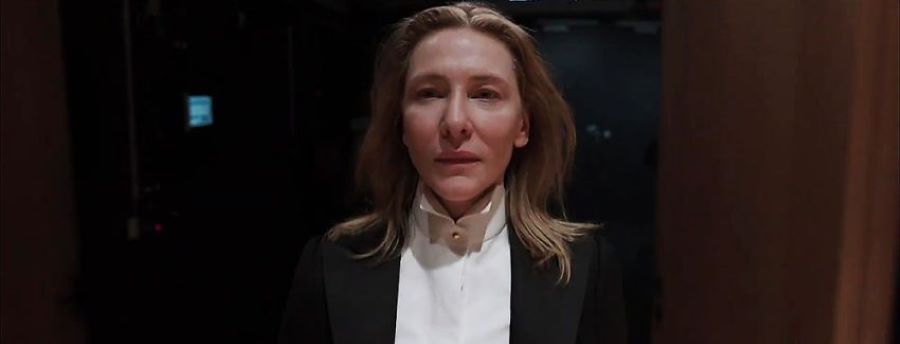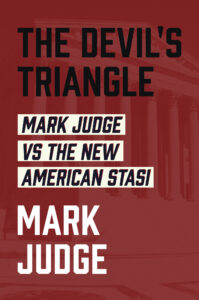The New #MeToo Movie Tár Makes Conservatives Into Monsters

The new film Tár is getting buzz. It stars Cate Blanchett as a classical music conductor named Lydia Tár who is headstrong, abrasive, and guilty of blackballing a female former student she took advantage of sexually. The student eventually commits suicide.
Tár has confused critics. Because the film includes a scene in which Blanchett’s character mocks a politically correct student for his ridiculous woke ideas, some think this is a conservative film. In The New Yorker, Richard Brody had this to say: “Tár is a regressive film that takes bitter aim at so-called cancel culture and lampoons so-called identity politics.”
Brody is wrong. Tár is a leftist film that is about the crashing and burning of an abusive conservative bully. The lead character is a symbol of what liberals think of as conservative privilege and cruelty, despite the fact that the character is a lesbian and a classical music conductor. What is crazy (but maybe not surprising) is that liberals think that conservatives and Christians would somehow accept Lydia’s behavior. That we somehow value art and genius over the treatment of other human beings, when the opposite is true. But then, Hollywood produced this film, which was written and directed by Todd Field. Blanchett herself is so far left that her own kids roll their eyes at her sanctimony.
Please Support The Stream: Equipping Christians to Think Clearly About the Political, Economic, and Moral Issues of Our Day.
Make no mistake: Tár is a Progressive scolding aimed at the Right, despite its lovely music and urbane Berlin setting.
Don’t Let the Aesthetics Gaslight You
It’s incredible that the leftist politics of this film are not obvious to everybody, but maybe that’s because it’s dressed up in a lot of classical music and highbrow culture. The politics and agenda of Tár are established early. The first 10 minutes show Lydia Tár is at the New Yorker Festival where she is discussing the Hebrew concepts of “teshuvah” and “kavanah” and her love of the great conductor Leonard Bernstein. Tar is being interviewed by real-life journalist Adam Gopnik.
In a perceptive review in The Times of Israel, critic Andrew Lapin notes the importance of this scene. Indeed, is if the fulcrum of the entire film. Speaking to Gopnik, Tár says she learned from Bernstein how to appreciate classical music and also how to think of it in Hebrew terms.
Two phrases were particularly important: kavanah, or “intention” as it refers to the concentration of the mind during a performance and ritual. The second is teshuvah, or “return” — as in returning to something you had previously laid aside. Lapin then adds another meaning to teshuvah beyond music:
Jewish teachings also understand that the word, frequently invoked on Yom Kippur, refers to the concept of seeking atonement for past sins. Tár, as it turns out, has a lot of past sins she needs to atone for, and her failure to do so ultimately leads to her downfall.
Putting these two things together is what forms the theme of Tár. As Lapin notes, “Tár’s own interpretation of these ideas puts an artistic lens on their meaning in Jewish tradition, where they’re most often used in connection to prayer and repentance.”
This Film Manages to Slander Brett Kavanaugh, Again
How this opening scene plays out tells you everything you need to know about the next two-plus hours. Something related to time or turning back to something thought forgotten in the past is going to occur (teshuvah), and that will trigger the need for repentance (kavanagh). There’s also this wrinkle, which gives the game away. When Lydia Tár mentions “kavanagh” in her interview, she quickly adds that “to this audience that word might mean something else.” By this she means that they audience will probably think of Supreme Court Justice Brett Kavanaugh. As if on cue, the audience lustily boos.
Regular readers of The Stream know that I have spent the last few years writing about the Kavanaugh battle and my involvement in it that sprang from my friendship with Brett going back to high school. I won’t rehash it here. You can read about it in my forthcoming book. I can only say that it was a bit bizarre to step into a movie theater to see a well-acted drama and hear Mahler’s Ninth Symphony only to be confronted with a hostile New York audience booing my high school buddy, who was falsely accused of sexual assault.
The booing scene instantly made clear what I was about to watch. Tár would be another angry story about what heartless monsters conservatives are.
A Nasty Caricature of Conservative Resistance to Woke Gibberish
This is most evident in the ghastly way Tár treats a student at Juilliard. The student named Max (Zethphan Smith-Gneist), identifies “as a bipoc pangender person,” and argues that he can’t take Bach seriously because the composer was a misogynist. Tár mocks, bullies, and humiliates Max in front of the class in the most savage and brutal way. It’s not argument, it’s a mauling.
This scene has led some reviewers, and a few conservatives, to argues that Tár is a pushback to cancel culture. Nonsense. I have been a conservative for a while now and I have never seen anyone on our side treat opposing arguments with the cruelty that Tár displays towards Max. Ben Shapiro can be caustic, but this is just shy of Hitler.
Conservatives actually believe in civil discourse, and that the way we treat others is even more important than culture. As the genius Catholic philosopher and Doctor of the Church Dietrich von Hildebrand once wrote:
Moral values are the highest among all natural values. Goodness, purity, truthfulness, humility of man rank higher than genius, brilliancy, exuberant vitality; higher than the beauty of nature or of art, higher than he stability and power of a state. What is realized and what shines forth in an act of real forgiveness, in a noble and generous renunciation, in a burning and selfless love, is more significant and more noble, more important and more eternal, than all cultural values.
Making a Monster
Tár doesn’t have time for such truthfulness, because director, producer and writer Todd Fields and woke Cate Blanchett are too busy creating a monster. I mean that literally. For all its highbrow trappings, Tár has elements of the horror movie genre. There are strange noises in the night, screams that seem to come from nowhere, and a big black dog that confronts Tár like a specter. Make no mistake: Lydia Tár is a right-wing jackal and she is guilty. Don’t let the fact that she is profiled in The New Yorker or happens to be a lesbian fool you.
What a disappointment. Field and Blanchett could have used their millions of dollars to create a truly compelling film, one that was based on how someone navigates being falsely accused of a crime in a left wing atmosphere of hysteria. You could keep the Berlin setting, which evokes not only Hitler but the Stasi, the Cold War secret police in East Germany that falsely accused thousands of innocent people of crimes they did not commit. The Stasi often did so with the help of artists.
Here in America, victims like Brett Kavanaugh were mostly the prey of “journalists.”
Mark Judge is a writer and filmmaker in Washington, D.C. His new book is The Devil’s Triangle: Mark Judge vs. the New American Stasi.







